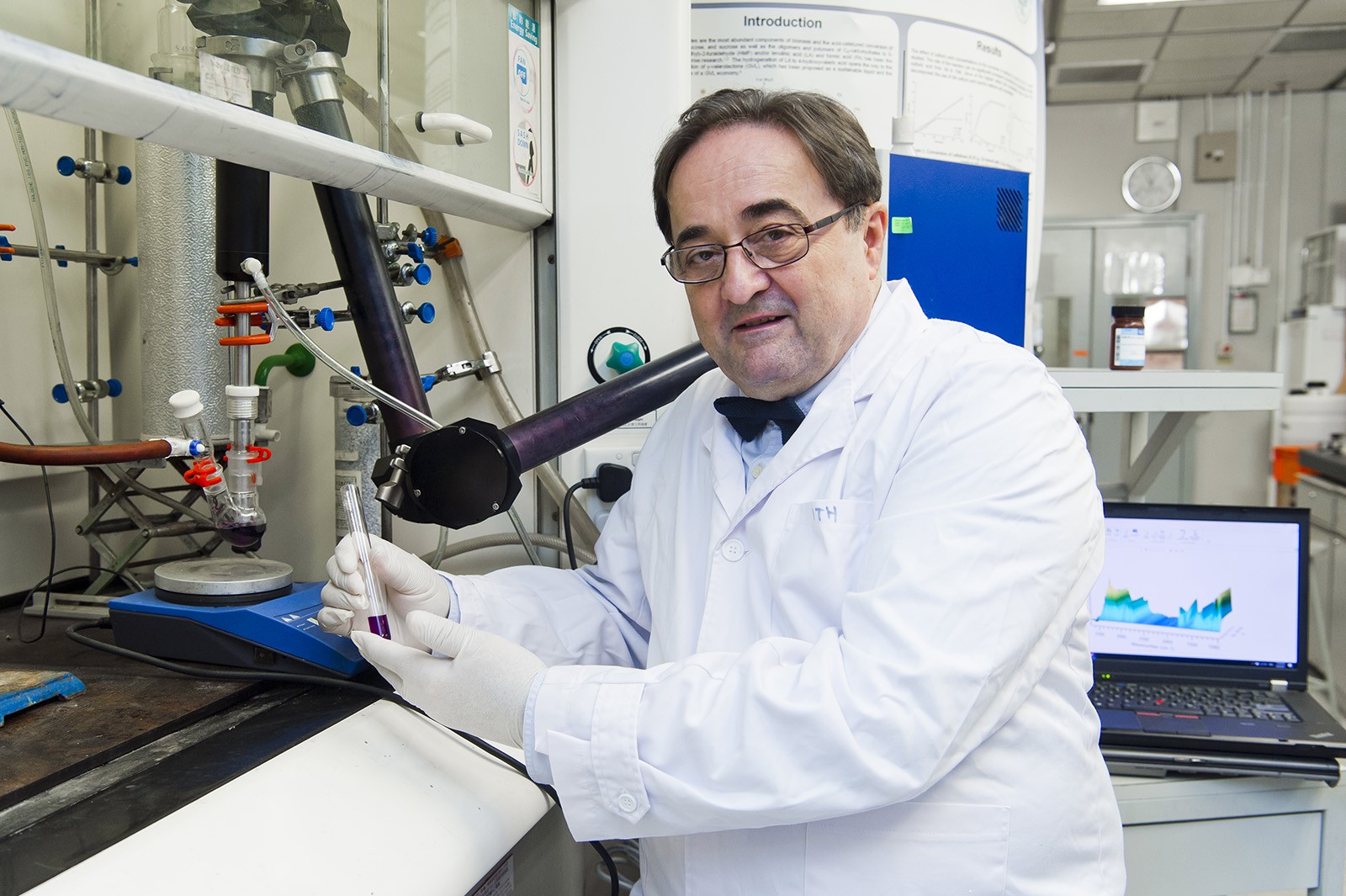Top scientist elected Fellow of Hungarian Academy of Sciences

Chair Professor István T. Horváth of the Department of Chemistry at City University of Hong Kong (CityU) has been elected External Member of the Hungarian Academy of Sciences, Budapest, Hungary for his significant contributions to catalysis and green chemistry.
Professor Horváth is internationally recognised for his research on the mechanisms of transition metal catalysts, the replacement of traditional organic solvents with novel reaction environments, and the application of new, biomass-based renewable chemicals.
“It’s a very important recognition for me. I feel privileged to be elected,” said Professor Horváth, who joined CityU in 2009.
His fluorous biphasic concept led to the evolution of fluorous chemistry. This fundamental discovery allows chemical reactions to be controlled and proceed. His landmark paper on this topic with Dr József Rábai in the top academic journal Science in 1994 and his review in Accounts of Chemical Research in 1998 achieve an average of 48 and 30 citations per year, respectively.
Another major research direction is the conversion of biomass to fuels and chemicals as well as the definition and metrics of sustainability. He suggested that gamma-valerolactone (GVL), a naturally occurring chemical and frequently used food additive, could become a “sustainable liquid for energy and chemicals” for future generations. Other researchers have expanded on these concepts, offering good prospects for the development of a GVL economy.
Professor Horvath’s profound contribution to chemistry has been recognised by different awards and academies. He received the 1st Fluorous Technology Award in 2005, the Senior Humboldt Research Award in 2006, and the RSC Green Chemistry Lecture Award in 2008.
He is Honorary Member of the National Academy of Sciences, Literature and Arts in Modena, Italy, Fellow of the Royal Society of Chemistry, Fellow of American Chemical Society and Fellow of American Association for the Advancement of Science.
Established in 1825, the Hungarian Academy of Sciences has national status with about 700 members, including corresponding and full members (for Hungarians living in Hungary), external members (for Hungarians living outside the country), and honorary members (for non-Hungarians).
